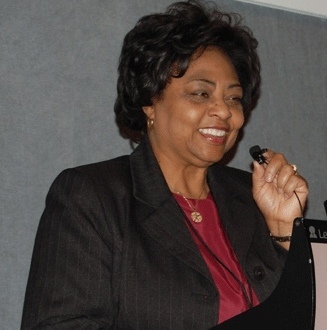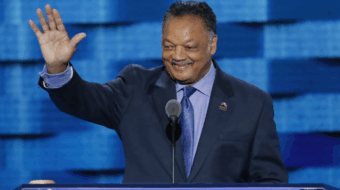
Tea party supporters can deny all they want that their “movement” is rife with racism. The American people aren’t buying it.
“Methinks the racists doth protest too much,” says one Washington Post commenter on a blog about a tea party group restating its opposition to racism.
One white Republican who voted for Barack Obama in 2008 told this reporter that tea party and other post-2008 anti-government protestors “don’t like a black president, period.”
“They can deny it all they want, but that’s what I think,” she said. “Where were they during the Bush presidency?”
This “swing” voter represents a major trend among Americans: they want the Obama administration to succeed and don’t like the use of racism to attack the president.
A renewed national debate on racism emerged after the NAACP, at its recent convention, passed a resolution calling on the tea party movement to condemn racism in its ranks and leadership.
In a July 13 press release on the resolution, NAACP President and CEO Benjamin Jealous said, “We take no issue with the tea party movement. We believe in freedom of assembly and people raising their voices in a democracy.
“What we take issue with is the tea party’s continued tolerance for bigotry and bigoted statements. The time has come for them to accept the responsibility that comes with influence and make clear there is no place for racism and anti-Semitism, homophobia and other forms of bigotry in their movement.”
Apparently, some on the far-right thought that reasonable urging from the nation’s “oldest and largest” civil rights organization was unreasonable. A firestorm of rhetoric ensued from tea party groups and their powerful supporters like Fox TV.
Tea Party Express leader Mark Williams called the NAACP “racist” and then posted a bizarre, incendiary fake letter addressed to President Abraham Lincoln calling on him to reinstate slavery because “Coloreds” had “a great gig.”
Williams proved the NAACP’s point by using racist lies and crude caricatures of African Americans that could have been lifted right out of Klan literature.
Indicating the wide disgust at such blatant racism, the Tea Party Federation “expelled” the Tea Party Express.
But the racist pile-on didn’t stop there. Far-right blogger Andrew Breitbart and his comrades at Fox broadcasted an obviously edited video of civil rights veteran and Department of Agriculture official Shirley Sherrod giving a speech at a Georgia NAACP meeting in March. Engaging in “gotcha” fraud like it used to wreck ACORN and former White House advisor Van Jones, the far-right tried to portray Sherrod as an “angry black woman” who discriminated against a white farmer.
The sound-bite dirty trick led USDA Secretary Tom Vilsack to rush to fire Sherrod.
But the full 45-minute speech got aired on the Internet, and showed that what Sherrod really said about not giving “her all” to help a white farmer was part of a much bigger story about understanding, growth and redemption. Sherrod helped save the white farmer from losing his farm.
Vilsack has now apologized and offered Sherrod a new position. Sherrod said she wasn’t sure if she would accept.
Sherrod’s 45-minute speech showed deep thought and commitment to making life better for people. She touched on her life in rural Georgia, racism and black-white unity and appealed to young African Americans not to reject work in agriculture.
She told how her father, a leader in his community in the Jim Crow South, was lynched by a racist mob.
Sherrod is a veteran of the civil rights movement, along with her husband, Charles Sherrod. She joined the Student Nonviolent Coordinating Committee in 1965 and committed herself to making a better life for African Americans – and all poor people.
She is just the kind of person you’d want working for the USDA.
Many civil rights advocates and progressives have criticized the Obama administration for carelessly bowing to the far right in this case. Many are sending messages of support for Sherrod to the White House.
Many point out the “depressing” and “sad” irony of a black employee getting fired from the USDA for discrimination when the USDA has historically been rife with racism towards Black farmers. (For related People’s World stories on African American farmers and USDA, click here.)
Missing in this firestorm has been a basic understanding of racism and the role it has played – and continues to play – in this country. Can African Americans be racist? No, because racism is not just a personal prejudice. It’s a reflection of an economic system.
Describing a new racist counteroffensive since the election of Obama, Sam Webb writes:
“Many people say that racism is simply an attitude or a prejudice of one people toward another people. That allowed Republican senators to make the ludicrous claim that Sonia Sotomayor was a racist, during the hearings on her Supreme Court nomination.
“In reality, racism is a historically developed set of practices, institutions and beliefs that systematically subordinate racially oppressed people to an inferior status in every area of life.”
As Americans rejected existing racist practices, he argues, new ones emerged, spurring new struggles against them. The current racist rampage, he writes, is centered on stripping away “the legitimacy of the first African American president.”
The Republicans, tea party and others who use racism will run into a “powerful anti-racist response not only from people of color, but also from the white majority and white workers,” Webb says.
But if racism goes unchallenged, he writes, “It could lead to disaster, via a much uglier version of the Bush-Cheney administration.”
The NAACP has provided an opportunity to build that struggle for multi-racial unity and against racism. Along with labor unions and others, it is organizing for a major jobs march Oct. 2 under the slogan “One Nation Working Together,” combined with voter mobilization for the 2010 midterm elections.
Both are opportunities to send a message to the far right that Americans won’t tolerate racism.
Photo: Georgia USDA Rural Development State Director Shirley Sherrod welcomes a group to Georgia as part of a USDA program. (USDA/CC)










